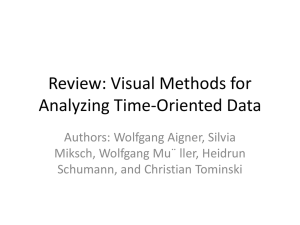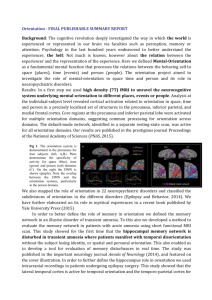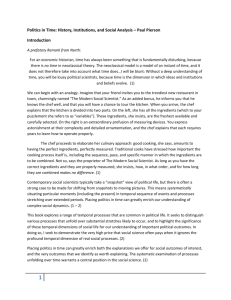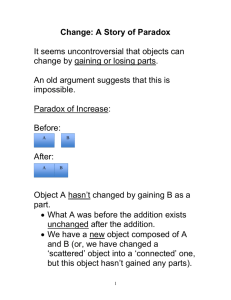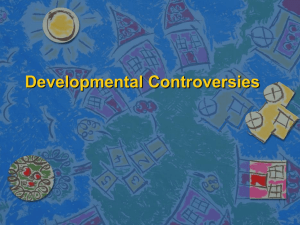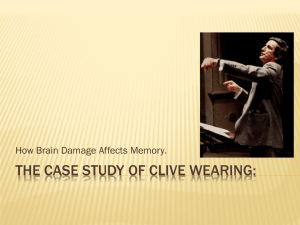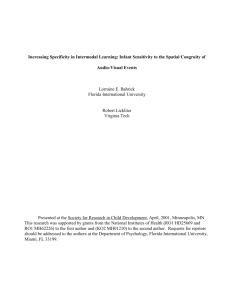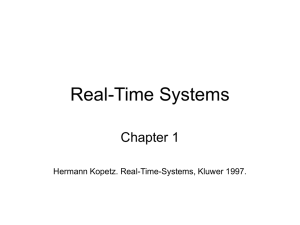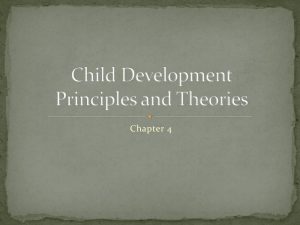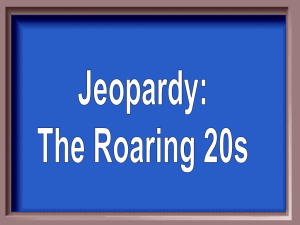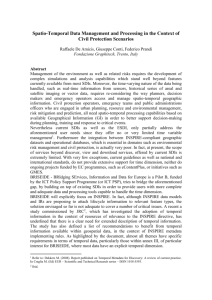ClassPresentation13
advertisement
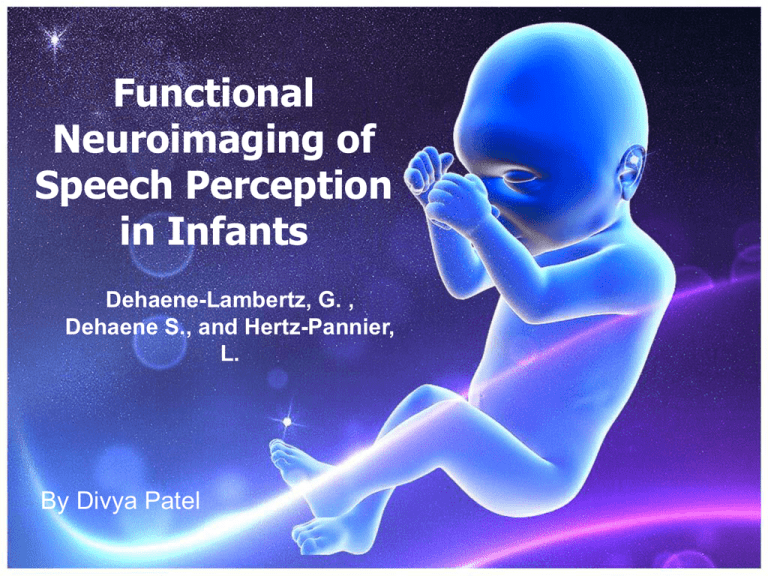
Functional Neuroimaging of Speech Perception in Infants Dehaene-Lambertz, G. , Dehaene S., and Hertz-Pannier, L. By Divya Patel Why study infants? • Adult human brain: anatomical and functional specialization for speech processing • How? – clarify how it emerges through development Language and infants? • Considerable language takes place in the 1st year • Development in: – Phonology: organization of sounds – Prosody: tone of voice, rhythm – Word segmentation: when a word starts/ends Motivation • Not much known about brain mechanisms • Studies mostly use ERPs – Great know temporal lobes contain neural circuit for phoneme discrimination – Not as great do not provide spatial information • This study uses fMRI Experimental Design 20 healthy, non-sedated infants (2-3mo) Speech = highly intonated female voice; in French 20s of forward speech 20s of backward speech 20s Silence 20s Silence Hypothesis • Forward speech = ↑ activation than backward speech • Fast temporal auditory transitions and phonetic information will be jointly activated Activation to Sound • Similar to adults Brain Lateralization • Similar to adults Forward Speech vs. Backward Speech • In adults, the area is left superior temporal sulcus Awake vs. Asleep Was the hypothesis supported? • Forward speech = ↑ activation than backward speech in left angular gyrus and left mesial parietal lobe Yes • Fast temporal auditory transitions and phonetic information will be jointly activated in left temporal lobe – From superior temporal gyrus to surrounding areas of superior temporal sulcus Other underlying mechanisms? • In adults: – Precuneus and dorsolateral PFC (dlPFC) activated during retrieval Yes, there seems to be • In infants: – Precuneus and dlPFC activated • May indicate early engagement of active memory retrieval mechanism Strengths Limitations • Approaches were different than prior studies • Not enough background – Used fMRI – Used non-sedated babies • Very straight forward • Images corresponding to brain parts – Assumed all readers would know basic infant brain development Future Directions • It would be interesting to do a longitudinal study, to understand when exactly the changes take place • To create a study where retrieval can be tested, perhaps through habituation • To find specific evidence for either – nativist view (language mechanisms are innate) – interactionist view (language mechanisms are developed through interaction) QUESTIONS? Dehaene-Lambertz G, Dehaene S, Hertz-Pannier L. (2002) Functional neuroimaging of speech perception in infants. Science 298(5600):2013-5.
